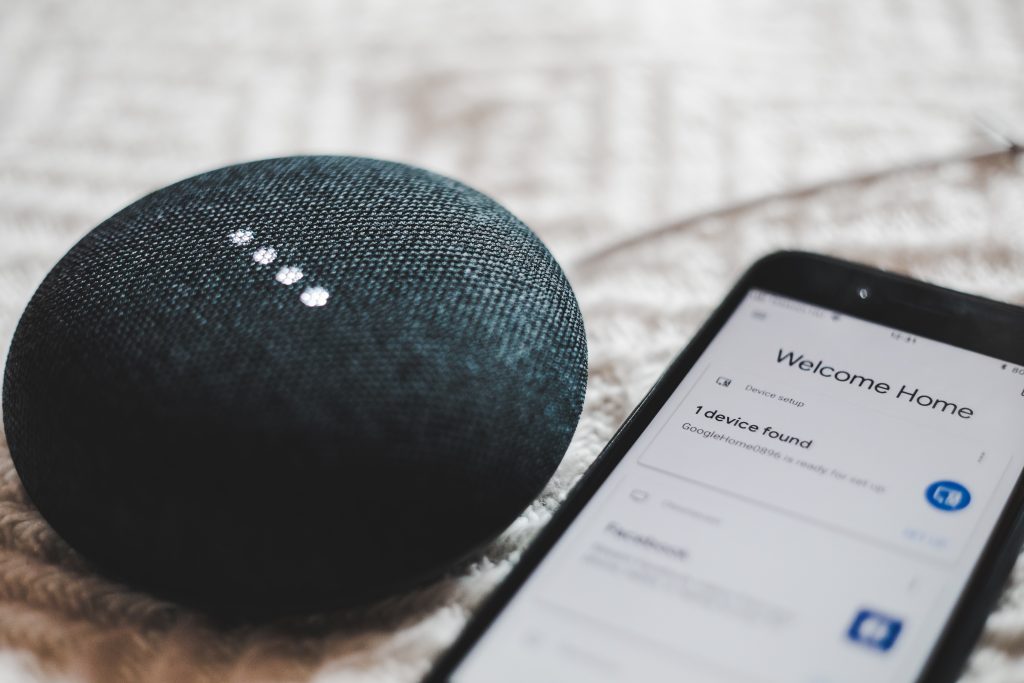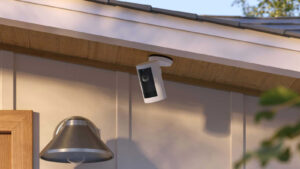Understanding the Pros and Cons to Smart Home Technology
It seems like everyone today has some newfangled piece of technology in their home: whether it’s a digital voice assistant, a doorbell that records the comings and goings of its residents, or a thermostat controlled remotely via smartphone, people of all ages and stages of life have quickly adopted home automation technology.
Smart technology has revolutionized the way we work, so it only makes sense that after seeing its success in the workplace we’re ready to adopt it in our personal lives, too! In the twenty-first century, we’re seeing more homes make the switch to smart technology and home automation all across the country than ever before in history.

A smart home is a home that uses any form of electronic device or technology to control or automate tasks around the house. These smart homes typically communicate between all devices located around the house via one central hub that acts as the brains of the operation. The devices can be anything from temperature sensors and smart thermostats, wall plugs, door and window sensors, cameras, automated lighting, and more.
Just like a smartphone which does a whole lot more than just make phone calls these days, smart home tech makes it easy to automate a lot of manual tasks around the house, saving you time and energy. But like all good things, there can be drawbacks to upgrading your home you should consider as well.
Here’s your comprehensive guide to the pros and cons of smart home technology.
Pro: Convenience at Your Fingertips
Is there anything easier than using your voice or the push of a button to adjust the lights, volume, or temperature in a room? Home automation devices simplify everyday tasks, allowing you to relax when you’re at home as well as when you’re away from it.
Many technological appliances include remote capabilities, so you can adjust things even if you’re physically outside of the home. No more worrying if you left too many lights on — now you can use your smartphone to turn everything off without needing to head home to check!
Con: Compatibility Considerations
One of the initial cons to making your home smart is not using technology that plays nicely with each other. The smart technology industry is competitive, and there are a lot of options available on the market. Do you know what works well with each other? It’s important to do your research and decide which ecosystem works best for your needs.
The last thing you want is to have invested in multiple types of automated devices who don’t work together nicely.
Pro: Energy Efficiency
One of the best things about smart home technology is the level of energy efficiency it will introduce to your home. Automated thermostats are easily programmable, so you can set things to the optimum temperature throughout every part of the day!
Energy management devices like lighting controls, smart power strips, and smart plugs can all help to reduce both your impact on the environment, and your monthly utility bill! You can even integrate smart sprinkler systems and sensors to reduce water waste and alert you to potential water leaks quickly.
Con: Internet Outages
One drawback to a smart home is the possibility of an internet outage. While rare, losing power or access to the internet for any amount of time is already an inconvenience — but when your entire home is dependent on it in order to do its job, the frustration can grow.
Still, you can cut down this risk if you have a backup plan in place to keep your system working despite an outage — in fact, most smart systems and devices come with some form of backup to enable them to keep working. It’s just important to know the limitations of your smart home appliances and technology ahead of time!
Pro: Safety and Security
Gone are the days of only trusting our dogs to keep our homes safe: now, thanks to smart home automation and technology, our home security systems are always in our back pockets. Whether you’re looking for a simple security monitoring system with door and window sensors and a doorbell camera, or a more comprehensive setup, there’s plenty of internal and external security solutions that can be monitored remotely, via a security company, or the local police and fire departments!
Con: Vulnerabilities
The Internet of Things has fundamentally changed our world, but in both good ways and bad. While we now have access to these awesome, interconnected devices that make our lives so much easier both at home and at work, they also make us more vulnerable to potential cybersecurity breaches.
It’s important to remember that hackers can take control of your connected devices at any time. Cameras, microphones, and entire security systems can be vulnerable to the work of a hacker — but so can your internet access! Secure your Wi-Fi network, manage and update account passwords and firmware on a regular basis, and be sure to monitor your network. With a few simple security measures in place, you can enjoy your smart home without concern.
Pro: Accessibility for all Ages
One of the coolest things about the rapid adoption of smart home technology is the increase in accessibility around the house. Aging individuals or those with physical disabilities can now more easily access their home, offering complete control right at their fingertips. A smart home system also increases the security of a house.
Smart homes empower people of all ages the opportunity to lead independent lives in their own homes!
Con: Complex Technology Systems to Learn
While technology might seem fairly intuitive to some, it can be a challenge to master for others. Your home may feel smarter, but it might make you feel dumber! That’s why it’s important to work with the experts. Smart home professionals like Eco Smart Home Pros can help you design and build your dream smart home, and help you to learn how to use it properly.
Pro: Increased Home Value and Insurance Incentives
Did you know that smart home systems are now being factored into the appraisals for home sales? Smart thermostats, smart smoke detectors, and home security systems are all proven to increase a home’s overall value!
Plus, many insurance providers reward smart homeowners by reducing their premiums, because a smart system can minimize damage and lower the number of claims a policyholder will file.
Con: Initial Startup Costs
All good investments come at a price. Even though home automation systems have become significantly more affordable over the years, the initial cost to outfit your home with smart devices and technology can still add up. Be sure to do your research to find out what will work best to fit your specific needs!
In Conclusion: Eco Smart Home Pros Can Help!
With more than thirty years of experience in programming and technology, Eco Smart Home Pros believe that technology can be the answer to helping you live a happier, healthier, and more sustainable life. Our dedicated team of smart home installation professionals can help you develop a solution that’s optimized to your lifestyle, meeting all of your tech needs both at home and in the workplace. Learn more.
Frequently Asked Questions
What are the advantages of a smart home?
There are a variety of advantages to a smart home, including an increase in:
- Convenience
- Energy efficiency
- Safety and security
- Accessibility
- Home value
- Insurance incentives
And much more!
What is a smart home professional?
Smart home professionals are trained and experienced when it comes to designing and installing smart technology ecosystems that completely revolutionize the home and the office. These individuals are armed with the right tools, resources, and years of experience to design and implement some of the most intelligent homes found today. These are certified programmers, installers, and computer networking specialists who have years of experience in customizing electronic systems for commercial and residential spaces.
Is now the time to make your home smart?
It’s always important to do your research first, but if you’re interested in learning more about the process of working with Eco Smart Home Pros, schedule a complimentary consultation to get started.


